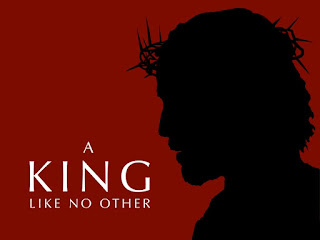A KING LIKE NO OTHER
Homily for the Solemnity of Christ the King, Year C
©Fr. Ugochukwu
Ugwoke, ISch
Scriptural Texts: 2
Samuel 5:1-3, Colossians 1:12-20, Luke 23:35-43
Today,
the Church celebrates the Solemnity of Christ the King. This celebration dates
back to the earliest 20th century. As waves of nationalism and
secularism were on the rise across the globe, Pope Pius XI instituted the
Solemnity of Christ the King in 1925 as a reminder that Christ reigns above all
earthly rulers and his kingdom remains eternal. The solemnity of Christ the
King reminds us that our ultimate allegiance is to Jesus Christ. He alone is
our King; his claim on our lives is greater than that of any earthly ruler or
political system.
Power,
influence and wealth are some of the symbols of kingship. The kings of the
earth lorded over others (Luke 22:25). But with Jesus, we have a different
understanding of kingship. The difference between Jesus and earthly kingship is
beautifully portrayed in the conversation between Pilate and Jesus in the
gospel of today (Luke 23:. Jesus is king not because he wielded earthly power
but because he suffered under it. With Jesus, we see a kingship that is rooted
in service and sacrifice. By emptying himself, taking the nature of a servant
and laying down his life for us on the cross (Philippians 2:1-10), Jesus
teaches us that to be in a position of power and authority is to be in a
position of service (Luke 22:24-27). Position of power is not avenue to exploit
and oppress others.
Every
king has a kingdom but the kingdom that Jesus came to proclaim is different
from every earthly kingdom. In the first place, Christ’s kingdom is supreme,
extending not only to all people but also to their princes and kings. Second,
Christ’s kingdom is universal, extending to all nations and to all places
(Revelation 20). Third, his kingdom is eternal, because while kings and
kingdoms come and go, Christ’s reign as king is from everlasting to everlasting
and his kingdom has no end (Luke 1:33, Revelation 11:15). Fourth, his kingdom
is spiritual because it is not of this world (John 18:36, Colossian 1:13).
If
Christ is the king of the whole universe, then everything under heaven and
earth must be subject to him. As our king, Christ demands unflinching loyalty
and absolute trust from us his subjects. We show loyalty to Jesus by keeping the
commandments of God (Matthew 6:31-34). Also, as his subjects, we should allow
Christ to reign as king in our lives, homes, communities and the world at large.
If we let Christ reign in our soul, we will not become authoritarian. Rather,
we will serve everyone.
Finally,
the kingdom that Jesus came to proclaim is the kingdom of God’s merciful love,
justice and truth. It is a kingdom that is open to all including a sinner who
is ready to repent. God’s kingdom comes whenever God’s will is done on earth as
it is in heaven. On this solemnity of Christ the King, let us re-commit
ourselves to doing God’s will as Jesus reveals it, so that the signs of God’s
kingdom may be more plentiful among us. Today and always, let us remember to
make the prayer of that robber our own prayer: ‘Lord, remember me when you come
into your kingdom’.



Comments
Post a Comment